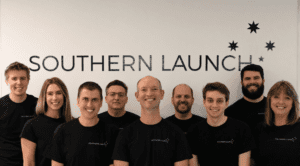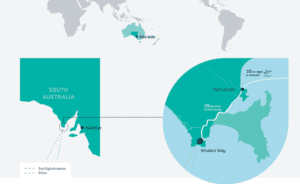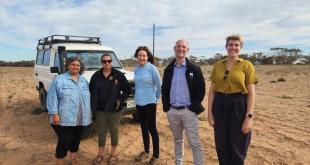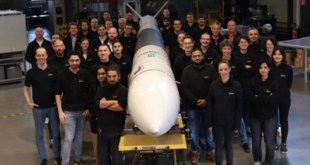
The development of small-satellite technologies (SmallSats) has ushered in an era of dynamic and responsive space systems. Hundreds, and soon thousands, of these small platforms will be launched into Low Earth Orbits (LEO) every year. LEO are ideal for Earth-Observation missions and other near-earth activities, including internet with global coverage. Approximately half of these SmallSats are projected to be launched into polar orbits, with the other half orbiting around the equator.
According to recent estimates by an SSTL study, close to 1000 SmallSats will be launched annually from 2025 onwards. These satellites will be inserted into new and existing LEO constellations, offering innovative services to the world, while actively limiting the proliferation of space debris in orbits. SmallSats in LEO remain there for less than 3 years before burning up in the Earth’s atmosphere.
Historically, launch sites have been constructed closer to the equator to support large satellites launches into equatorial orbit. However, direct launch to polar orbit is achieved most efficiently from launch sites nearer the poles, which have minimal interference from aviation and maritime traffic.
Southern Launch, founded in 2017, is developing a multi-user launch complex at the tip of the Eyre Peninsula in South Australia, offering a turn-key launch service solution to polar and sun-synchronous orbit. In addition to providing the complete launch infrastructure, Southern Launch has the ability to undertake flight and range safety, vehicle design, and avionics, while assisting with launch permitting and other support services. The year-round temperate weather, coupled with the skilled local workforce and a robust logistics supply network, enables a launch site that offers high-cadence launch operations at cost-competitive prices.

The growing global demand for launch services and a world-class launch location has attracted several early investors, with Southern Launch running an oversubscribed seed funding round at the end of 2019, with a larger Series A round to be finalized in coming months. With a team drawing on previous experience with the Australian Department of Defence, commercial launch providers, and global infrastructure companies, Southern Launch offers capabilities to enable safe, secure, and efficient launch operations. Southern Launch has signed a number of agreements with launch service providers and launch vehicle manufacturers from around the world, including companies based in South Korea, Singapore, Germany, USA, Canada, Poland, and the Netherlands. While some launch service providers are looking for a launch site for their maiden (test) flights, customers have recognized the potential of the Whalers Way location for regular commercial launches, and the cost effective and efficient services offered them by Southern Launch’s complete launch service solution.
Southern Launch CEO Lloyd Damp said, ‘The space industry is in the midst of a rapid transition seeing increasing impact of the private sector providing services to Government agencies such as NASA. Small satellites, in the class of 1 to 500 kg, are a major part of this transition, and need suitable locations to be launched from. Our Whalers Way site in South Australia meets this market demand and with the ongoing support from the Australian Space Agency and South Australian Government, we are on track to realize this very real opportunity for Australia.’
Construction of the Whaler’s Way Orbital Launch Complex is scheduled to be completed ahead of the first launch in 2021, with Southern Launch already contracted for flights.
For more information visit www.southernlaunch.space.





